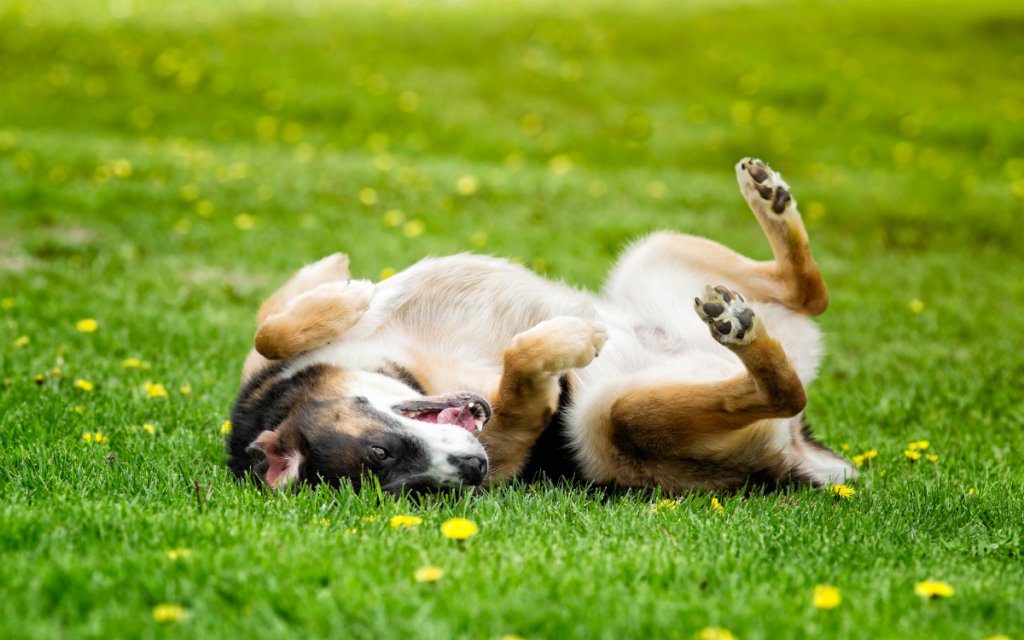Maintaining a beautiful garden while keeping your pets safe requires a thoughtful approach to weed control. While it’s tempting to use chemical solutions, it’s crucial to prioritize your furry friend’s well-being. Here are some pet-safe weed control tips to keep your garden thriving and your pets healthy:
1. Natural Mulch Barrier:
Create a natural weed barrier by using pet-safe mulch. Mulch not only helps retain soil moisture but also prevents weeds from growing by blocking sunlight. Choose mulch made from organic materials such as straw, bark, or wood chips.
2. Hand Pulling and Pruning:
For a practical approach, regularly check your garden for weeds and pull them out by hand. This method is effective for smaller garden spaces and allows you to control weed growth without resorting to harmful chemicals. Prune weeds close to the ground to prevent regrowth.
3. Vinegar Solution:
Mix white vinegar with water and a small amount of dish soap to make a pet-safe herbicide. This solution is a natural and effective way to control weeds. Make sure you apply it directly to the weeds, avoid unwanted plants, and keep your pets away until the solution dries.
4. Boiling Water Treatment:
Boiling water is a simple but effective way to kill weeds. If you pour boiling water over the weeds, it burns and kills them. Use caution to avoid splashing on desired plants and keep your pets away from you during treatment.
5. Pet Friendly Herbicides:
If you prefer store-bought solutions, look for pet-friendly herbicides that use natural ingredients. These products are designed to remove weeds without harming your pets. For safe use, always follow label directions.
6. Landscape Cloth:
Use landscape fabric to suppress weed growth while allowing water and nutrients to reach the soil. This breathable fabric creates a barrier to prevent weeds from growing. Make sure the fabric is secure to prevent your pet from coming into contact with it.
7. Regular Lawn Maintenance:
A well-maintained lawn is less conducive to weed growth. Mow your lawn regularly to prevent weeds from growing. Additionally, a healthy lawn reduces the space in which weeds can take root.
8. Pet Route:
Designate specific paths or areas in your garden where your pets can roam freely. By guiding their movements, you minimize the risk of trampling fragile plants and unintentionally spreading cannabis seeds.
9. Accompaniment Planting:
Discover the concept of companion planting to control weeds naturally. Certain plants can act as natural weed suppressants when placed strategically. For example, planting strongly scented herbs such as basil, mint, or rosemary next to garden plants can help repel weeds and create a fragrant environment.
10. Regular Inspection:
Schedule routine inspections of your garden to detect weed growth early. Early intervention is key to preventing weeds from establishing and spreading. Regular inspections also allow you to identify and address potentially dangerous or unwanted plants that may have entered your garden.
11. Pet Safe Fertilizer:
Choose a fertilizer that is safe for pets. Many conventional fertilizers contain chemicals that can be harmful if ingested by animals. Look for organic or pet-friendly alternatives that promote plant health without posing risks to your furry friends.
12. Tutorial:
Stay informed about plants that are poisonous to pets. Knowing which plants pose a threat to your animals can help you make informed decisions about your garden. This knowledge can guide you in the selection and placement of your plants, ensuring a pet-friendly environment.
13. Create a Pet Area:
Designate specific areas of your yard as pet-friendly. Plant sturdy, pet-safe plants in these areas and use pet-friendly mulch or ground covers. This way you can create a space where your pet can play and relax without having to worry about the risk of exposure to harmful plants or chemicals.
14. Natural Pest Control:
Introduce natural enemies to your garden to control pests that can cause weeds. Ladybugs, predatory beetles, and certain birds can help control pest populations without chemical intervention.
15. Teach Your Pet:
Train your pet to avoid certain areas of the yard. Positive reinforcement, such as treats and praise, can be effective in teaching pets boundaries. This not only protects your garden but also protects your pets from possible dangers.
Conclusion
Creating a pet-safe garden requires a combination of strategic planning, natural solutions, and regular maintenance. By implementing these weed control tips, you can achieve a balance between a lush garden and a safe environment for your beloved pets. Remember, proactive care goes a long way toward ensuring the health of both your plant and your furry companion.
FAQs
1. Are Chemical Herbicides Safe for Pets?
Although some chemical herbicides can be harmful to pets, there are pet-friendly alternatives. Consider natural solutions such as vinegar-based herbicides or pet-safe herbicides. Always follow the directions on the product label to ensure safe use.
2. Can I use traditional mulch in my pet-safe garden?
Traditional mulches such as straw, bark, or wood chips are generally safe for pets. However, be careful with cocoa mulch as it can be toxic to dogs if ingested. Choose coverings that are safe for pets and avoid anything that contains harmful additives.
3. How often should I check my garden for weeds?
Regular inspections are essential for early detection of weeds. Try to check your garden at least once a week, especially during the growing season. Early intervention will make weed control easier and prevent the spread of weeds.
4. Are there specific plants that repel weeds?
Yes, certain plants can act as natural weed suppressants. Herbs such as basil, mint, and rosemary have strong scents that suppress weeds. Discover companion planting techniques to maximize the benefits of these natural weed suppressants.
5. Can I use any type of fertilizer in my pet-safe garden?
Choose fertilizers labeled safe for pets or opt for organic alternatives. Some conventional fertilizers may contain chemicals that can be harmful if ingested by animals. Check the product label for pet-friendly options.



